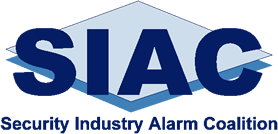Based on the hard work of Glen Mowrey and others, we’re hopeful that in South Carolina we’ll be able to get legislation introduced and supported in the state that would mandate two-call verification. Enhanced Call Verification or ECV, has been adopted in many other states across the country. It takes a strong commitment from local leaders in the electronic security industry, combined with help from law enforcement and elected officials.
If these groups don’t come together for the common good, the issue doesn’t get resolved. South Carolina is a good example of how much time and effort has to go into to getting ECV adopted. A bill will have to be crafted. Supporters will be rounded up. Committees discussion ensues, votes are taken, detractors surface. At each step, we must explain the advantages, address disadvantages of the legislation, and work cooperatively to resolve any differences.
When an alarm signal is received, ECV requires monitoring companies to place two calls prior to dispatch, usually one to the premise and then a cell phone, in an attempt to determine its validity. Typically, the alarm is confirmed as inadvertent, and everyone moves on with their day, saving time, money and resources for the local community by avoiding unnecessary responses. This is a big selling point for statewide legislation. It’s also important for standardization across jurisdictions – once passed, you know that each community has the same requirement, making your life easier.
We need to remember, too, that ECV benefits the security industry. In addition to happier customers, those saved officer resources become available to the valid alarms, and improves industry credibility with your local law enforcement. This serves our customers, and benefits our industry.
If ECV legislation comes up as an issue in your state, we urge you to be vocal, step forward, and support it. It is going to impact your business, because it benefits all stakeholders, thus creating a more positive selling environment.
